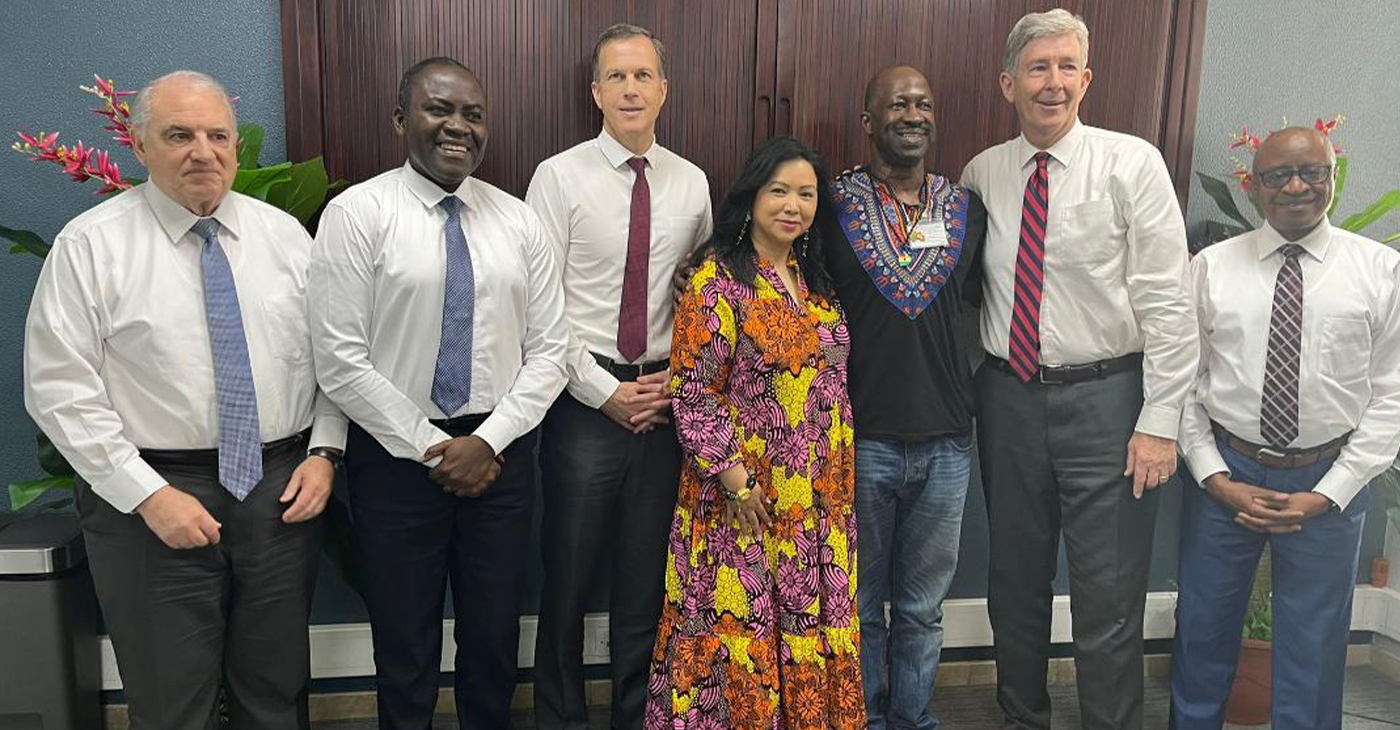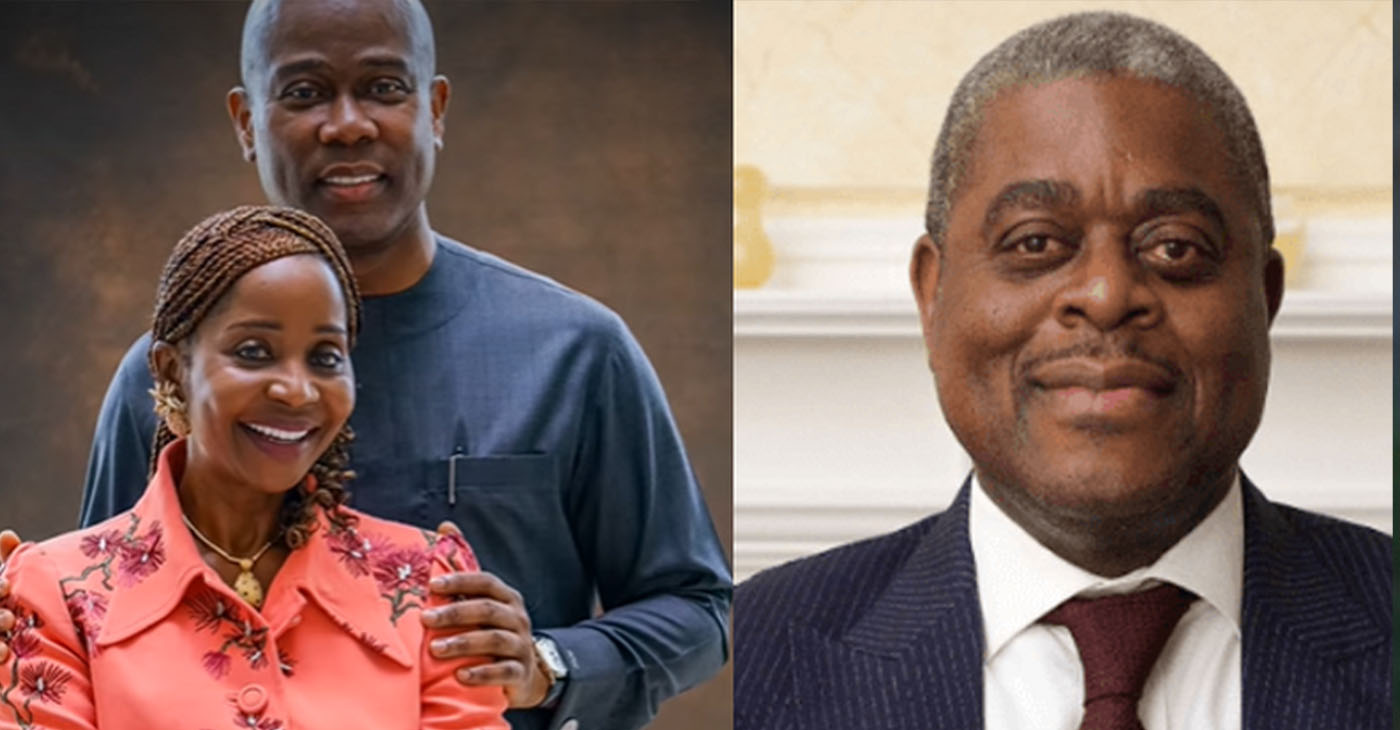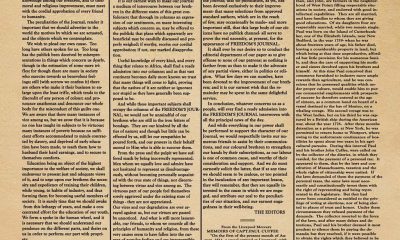World
Liberia Cautiously Marks End of Ebola with 4,700 Deaths

In this photo taken on Friday, May 8, 2015, Mercy Kennedy, left, sits with her caregiver Martu Weefor, right, after school at her home in Monrovia, Liberia. (AP Photo/ Abbas Dulleh)
Jonathan Paye-Layleh and Krista Larson, ASSOCIATED PRESS
MONROVIA, Liberia (AP) — On the day Mercy Kennedy lost her mother to Ebola, it was hard to imagine a time when Liberia would be free from one of the world’s deadliest viruses. It had swept through the 9-year-old’s neighborhood, killing people house by house.
Neighbors were so fearful that Mercy, too, might be sick that no one would touch her to comfort her as tears streamed down her face. She had only a tree to lean on as she wept.
Now seven months later, Liberia on Saturday officially marked the end of the epidemic that claimed more than 4,700 lives here, and Mercy is thriving in the care of a family friend not far from where she used to live.
“What we went through here was terrifying,” said Martu Weefor, 39, who is now raising Mercy alongside her three biological children and Mercy’s older brother. “Nobody wanted to pass on our road or have anything to do with us, everybody was afraid of the community. I thank God that Liberia is free from Ebola.”
Saturday marks 42 days since Liberia’s last Ebola case — the benchmark used to declare the outbreak over because it represents two incubation periods of 21 days for new cases to emerge. The World Health Organization on Saturday called the milestone a “monumental achievement for a country that reported the highest number of deaths in the largest, longest, and most complex outbreak since Ebola first emerged in 1976.”
The statistics of loss, though, are enormous in Liberia: 189 health workers dead. Some 3,290 children lost one or both parents to the disease, though most have been placed with other relatives or in foster care.
While praising the international community’s help in getting Liberia to zero cases, Liberian President Ellen Johnson Sirleaf on Saturday criticized the slow initial response to the epidemic in West Africa that cost many lives.
“This Ebola outbreak is a scar on the conscious of the world. For some the pain and grief will take a generation to heal,” she said. “Therefore, let today’s announcement be a call to arms that we will build a better world for those Ebola could not reach … It is the least the memories of our dearly departed deserve.”
Elsewhere in West Africa, new cases were still being reported this week in both Sierra Leone and in Guinea, where five of the new victims were only diagnosed after death. The fact they had never even sought treatment for Ebola means health officials lost critical time to track their relatives and other contacts.
“It’s important to remember the next case is only a canoe ride away across the river or across a forest path, so we still have an element of risk here and we all need to be very conscious of that,” said Sheldon Yett, UNICEF’s Representative in Liberia, who emphasized that the recovery needs also remain enormous.
At the height of the crisis back in August and September, Saturday’s milestone seemed far from reach. Liberia had between 300 and 400 new cases every week. People pushed victims in wheelbarrows down the streets of Monrovia, with only cheap plastic bags to protect their sandaled feet from possible exposure to Ebola. Scores of people too sick to stand waited outside Ebola treatment centers with the hope that enough people had died overnight so there would be beds for them and a chance at life.
The disastrous epidemic in Monrovia and the capitals of Guinea and Sierra Leone marked the first time the Ebola virus had infiltrated major urban areas where it could spread quickly through densely populated, impoverished neighborhoods. The outbreak caused its first deaths in December 2013 but only made headlines in March 2014 in Guinea before soon spreading to Liberia and Sierra Leone.
Worldwide panic heightened in late September when a man from Liberia tested positive for Ebola in the United States while visiting relatives in Texas. The disease also broke out in Senegal, Mali and Nigeria where officials managed to quickly isolate and quash their Ebola cases but the virus became deeply entrenched particularly in Liberia’s capital. Ultimately, social mobilization helped turn the tide.
“Communities here did the right thing: They isolated people who were sick, they reported people who were sick. Every street corner had stations for washing hands, and this made a difference,” Yett said.
Many of the treatment centers built with help from the United States finished construction after the height of the epidemic — some of the tarp and wood constructed facilities will be repurposed but many will be taken down. Communities scarred by the looming threat of death can’t imagine visiting them even months later, even if the clinics never treated a single Ebola case, experts say.
“Even today (when) we hear an ambulance siren, we have to shake a little bit, seeing if this normal or are we facing something again,” Liberia’s president said recently at an event marking the end of an American-built Ebola treatment center for exposed health workers.
There are also concerns about the long-term effects on survivors, including questions about how long the virus remains present in the body. On Friday, WHO updated advice and testing guidelines for male survivors of Ebola because of the “strong possibility” that the virus could be spread through sex months later.
And medical study this week found Ebola inside the eye of a patient months after the virus was gone from his blood. Tears and tissue around the outside of the eye, though, did not. That suggests it poses little public health risk, experts said.
It’s been nearly a year since Korlia Bonarwolo helped care for a co-worker at Redemption Hospital who later died from Ebola. The physician’s assistant had no protective suit and no special gloves.
The 26-year-old ultimately got treatment in the country’s first Ebola treatment center and now leads a network of more than 800 survivors across Liberia. He too was marking Saturday cautiously.
“We should instead be happy in our hearts,” said Bonarwolo, “and pray for the other countries to be freed.”
___
Larson reported from Dakar, Senegal.
Copyright 2015 The Associated Press. All rights reserved. This material may not be published, broadcast, rewritten or redistributed.
###
Activism
Oakland Ambassadors Strengthen Ties and Aid Efforts in Ghana
Oakland natives and esteemed members of the African American Sports and Entertainment Group (AASEG), Jonathan P. Jones and Dr. Maritony Efua Jones, recently embarked on a significant journey to Ghana as guests of the World Martial Authority Ghana. This trip signifies a crucial opportunity to bolster partnerships, explore new avenues of collaboration, and contribute to impactful initiatives in Ghana.

By Post Staff
Oakland natives and esteemed members of the African American Sports and Entertainment Group (AASEG), Jonathan P. Jones and Dr. Maritony Efua Jones, recently embarked on a significant journey to Ghana as guests of the World Martial Authority Ghana.
This trip signifies a crucial opportunity to bolster partnerships, explore new avenues of collaboration, and contribute to impactful initiatives in Ghana.
Upon their arrival at Katota Airport in Accra, Ghana, the Joneses were warmly received by His Royal Majesty Okatakyie Asafo Boakye III, the distinguished king of Sanzule Kingdom in the Eastern Nzema, and Etse Nyamedi of World Martial Authority, Ghana.
Nyamedi accompanied the Joneses to the city of Mepe, which had recently experienced flooding, to assess damages and engage with local leaders, elders, and youth regarding the city’s urgent needs after major floods last fall.
Key concerns and priorities identified by the community include comprehensive flood mitigation measures, agricultural support, housing initiatives, educational enhancements, improved healthcare access, and the development of communal recreational spaces.
The Joneses were also graciously invited to meet with leaders of The Church of Jesus Christ of Latter-day Saints at their headquarters in Accra. This meeting provided insights into ongoing humanitarian efforts in Ghana and explored avenues for collaboration to further assist Ghanaian communities.
The LDS leaders shared their prompt response to the recent flood, demonstrating their commitment to humanitarian aid by dispatching substantial supplies including medical provisions, sanitation items, blankets, and food to assist flood victims just four days after the disaster.
Additionally, Boakye extended a special invitation to the Joneses to his palace, where they were pleasantly surprised with a heartfelt recognition ceremony. Maritony Jones was honored as the Queen Mother of the Sanzule Kingdom in acknowledgment of her dedicated work, while Jonathan Jones was lauded and welcomed as the ambassador of the Sanzule Kingdom, symbolizing a meaningful homecoming to their ancestral land.
The visit not only strengthens ties between Oakland and Ghana but also underscores the collaborative spirit and commitment to meaningful progress and humanitarian endeavors shared by all involved parties.
Barbara Lee
Congresswoman Barbara Lee Issues Statement on Deaths of Humanitarian Aid Volunteers in Gaza
On April 2, a day after an Israeli airstrike erroneously killed seven employees of World Central Kitchen (WCK), a humanitarian organization delivering aid in the Gaza Strip, a statement was release by Rep. Barbara Lee (D-CA-12). “This is a devastating and avoidable tragedy. My prayers go to the families and loved ones of the selfless members of the World Central Kitchen team whose lives were lost,” said Lee.

By California Black Media
On April 2, a day after an Israeli airstrike erroneously killed seven employees of World Central Kitchen (WCK), a humanitarian organization delivering aid in the Gaza Strip, a statement was release by Rep. Barbara Lee (D-CA-12).
“This is a devastating and avoidable tragedy. My prayers go to the families and loved ones of the selfless members of the World Central Kitchen team whose lives were lost,” said Lee.
The same day, it was confirmed by the organization that the humanitarian aid volunteers were killed in a strike carried out by Israel Defense Forces (IDF). Prior to the incident, members of the team had been travelling in two armored vehicles marked with the WCF logo and they had been coordinating their movements with the IDF. The group had successfully delivered 10 tons of humanitarian food in a deconflicted zone when its convoy was struck.
“This is not only an attack against WCK. This is an attack on humanitarian organizations showing up in the direst situations where food is being used as a weapon of war. This is unforgivable,” said Erin Gore, chief executive officer of World Central Kitchen.
The seven victims included a U.S. citizen as well as others from Australia, Poland, the United Kingdom, Canada, and Palestine.
Lee has been a vocal advocate for a ceasefire in Gaza and has supported actions by President Joe Biden to airdrop humanitarian aid in the area.
“Far too many civilians have lost their lives as a result of Benjamin Netanyahu’s reprehensible military offensive. The U.S. must join with our allies and demand an immediate, permanent ceasefire – it’s long overdue,” Lee said.
Bay Area
Nigerian Bank Chief Killed in Helicopter Crash on Way to Superbowl XVIII
According to the San Bernardino County Sheriff’s Dept., the crash occurred near Nipton, on the edge of the Mojave Desert Preserve. The poor weather conditions — rain, wind and snow showers—may have contributed to the accident, although the investigation is not complete. All six aboard were killed. Herbert Wigwe, 57, founded Access Bank in 1989, and it became the country’s largest competitor, Diamond Bank in 2018.

By Post Staff
The co-founder of one of Nigeria’s largest banks died with his wife, son and three others when the helicopter transporting them from Palm Springs, Ca., to Boulder City, Nev. to attend the fifty-eighth SuperBowl at the stadium outside Las Vegas crashed on Feb. 9.
According to the San Bernardino County Sheriff’s Dept., the crash occurred near Nipton, on the edge of the Mojave Desert Preserve. The poor weather conditions — rain, wind and snow showers—may have contributed to the accident, although the investigation is not complete. All six aboard were killed
Herbert Wigwe, 57, founded Access Bank in 1989, and it became the country’s largest competitor, Diamond Bank in 2018.
More recently, Wigwe was planning to open a banking service in Asia this year after making successful expansions to other parts of Africa, including South Africa, Kenya, and Botswana.
Nigerian President Bola Tinubu described Wigwe’s death as an ‘overwhelming tragedy.”
Oakland resident and Nigerian immigrant Kayode Gbadebo agrees with Tinubu. He met Wigwe in Nigeria but crossed paths with him in London in 2006. Wigwe, he said, “took risks.”
He was young and people thought he couldn’t do what he intended, which was not so much about money but community.
“He was more like Jesus in washing the feet of the poor– Wigwe was culturizing community,” Gbadebo said.
“There will never be another like him. This is a deep, deep loss” and he hopes everyone will eventually “be comforted.”
He was also disappointed that a replacement has already been named even before Wigwe is buried. “It is not reasonable. You don’t want a vacuum, but it’s” not fair to the family, Gbadebo observed.
Wigwe had also been working to solve the migration issues from African countries, believing that “investing in higher education was key to controlling mass migration, which “is destabilising countries across the world,” BBC News reported.
“We need to take a holistic approach to address global migration, starting with our traditional framework for international development,” Wigwe wrote.
To that end, according to BBC News, Wigwe was preparing to open Wigwe University in Niger, where he was from.
“The best place to limit migration is not in the middle of the Mediterranean or the English Channel or the Rio Grande. It is in the home countries that so many migrants are so desperate to leave,” he wrote, saying his university was an opportunity for him “to give back to society.”
Besides Wigwe and his wife, Chizoba Nwuba Wigwe, and one son, two crew members and Bimbo Ogunbanjo, former group chairman of the Nigerian Exchange Group Plc, were also killed in the crash.
According to Wikipedia, three other children survive Wigwe.
In his statement reported in People magazine, Tinubu described Wigwe as “a distinguished banker, humanitarian, and entrepreneur.”
“I pray for the peaceful repose of the departed and ask God Almighty to comfort the multitude of Nigerians who are grieving and the families of the deceased at this deeply agonizing moment,” the president said.
He added, “Their passing is an overwhelming tragedy that is shocking beyond comprehension.”
Besides feeling the tremendous loss, Gbadebo fears the disorder and greed that will follow. “It’s a mess,” he said.
People magazine, BBC News and Wikipedia were the sources for this report.
-

 Community3 weeks ago
Community3 weeks agoFinancial Assistance Bill for Descendants of Enslaved Persons to Help Them Purchase, Own, or Maintain a Home
-

 Business3 weeks ago
Business3 weeks agoV.P. Kamala Harris: Americans With Criminal Records Will Soon Be Eligible for SBA Loans
-

 Activism4 weeks ago
Activism4 weeks agoOakland Post: Week of April 10 – 16, 2024
-

 Community3 weeks ago
Community3 weeks agoAG Bonta Says Oakland School Leaders Should Comply with State Laws to Avoid ‘Disparate Harm’ When Closing or Merging Schools
-

 Activism2 weeks ago
Activism2 weeks agoOakland Post: Week of April 24 – 30, 2024
-

 City Government3 days ago
City Government3 days agoCourt Throws Out Law That Allowed Californians to Build Duplexes, Triplexes and RDUs on Their Properties
-

 Community2 weeks ago
Community2 weeks agoRichmond Nonprofit Helps Ex-Felons Get Back on Their Feet
-

 Community2 weeks ago
Community2 weeks agoOakland WNBA Player to be Inducted Into Hall of Fame
















































